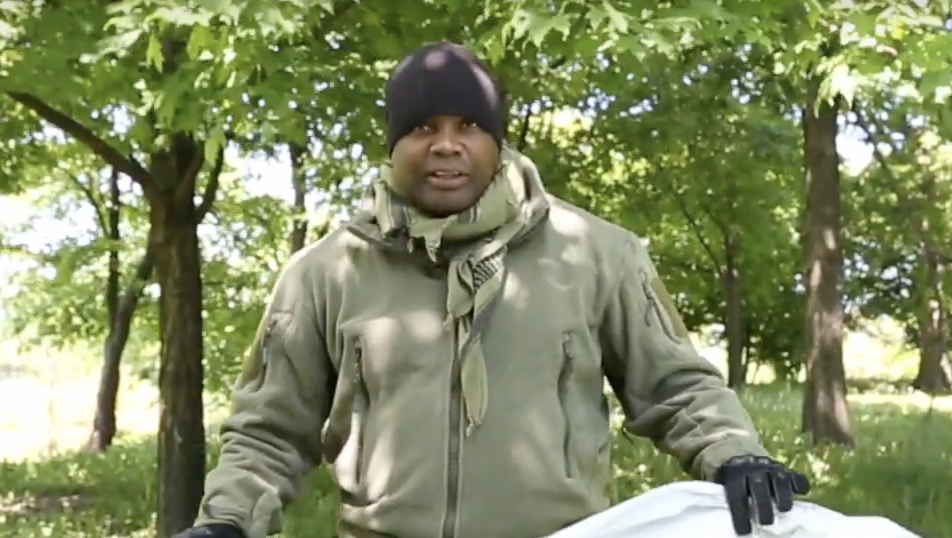AFM Announces Preliminary Findings Of Pilot Heatsheets® Recycling Program
AFM Launches Pilot Heatsheets® Recycling Program
September 12, 2008Heatsheets Launches the Rapid Unwind Racks™ and Cartonless™ Dispenser
January 11, 2009Tests at six fall marathons reinforce the need for well-planned, comprehensive waste recovery efforts at all running events.
October 31, 2008, Petaluma, CA: AFM founder and CEO David Deigan announced today the preliminary results of his company’s recently concluded pilot project for recycling Heatsheets®-on-a-Roll™ finish line and aid-station heat-reflective plastic blankets. Six marathons of various sizes, representing a wide range of U.S. recycling markets, were selected from AFM’s Heatsheets® customer base to participate in this pilot project, including: the Portland Marathon, October 5th in Portland, OR; the Medtronic Twin Cities Marathon, October 5th in Minneapolis-Saint Paul, MN; the ING Hartford Marathon, October 11th in Hartford, CT; the Mohawk Hudson River Marathon, October 12th from Schenectady to Albany, NY; the IMT Des Moines Marathon, October 19th in Des Moines, IA; and the Nike Women’s Marathon, October 19th in San Francisco, CA.
“Our original intent was just to develop guidelines for running events for recycling their film plastic waste,” said Deigan. “But, it quickly became apparent that no single recycling effort should be undertaken without taking into account an event’s overall waste recovery objectives, opportunities and plans. One of the key lessons we learned is that recycling at events, as a whole, requires a behavioral change in participants, which is one of the challenges. As a result, rather than restricting our post-pilot recommendations and informational materials to film plastic recycling, we’ll be developing a comprehensive waste management primer for our clients and other interested race directors. Our time frame for making that available, free of charge from our website, remains the first of the year.”
“Even though our recovery rates ranged from 4% to 58%, I’d have to call our effort successful across the board,” Deigan added. “The lessons we learned, particularly from the races where we did not collect a significant quantity of Heatsheets®, will allow us to move forward to the next step in the process—developing general guidelines for races that will enable them to recycle our product and other recyclable race materials more effectively.”
Two events, the ING Hartford Marathon and the Medtronic Twin Cities Marathon, recovered 58% and 46% of the Heatsheets® distributed at their finish lines, respectively. The ING Hartford is widely recognized as one of the “greenest” road races in America. The Heatsheets® recovery effort at the Medtronic Twin Cities was spearheaded by Jon Stein of Consolidated Container Company, a man focused on finding markets for the category 3 through 6 recyclable plastics that traditional waste management companies struggle to segregate and reprocess. Given the personal commitment of Jon Stein and Beth Shluger, the ING Hartford Race Director, the successful recovery of Heatsheets® at these two events was to be expected.
What wasn’t anticipated was the wide range of variables that impacted recovery efforts at the other four pilot events: weather, location of waste and recycling bins within the post-finish line area, signage and communication with volunteers, runners and haulers. The “keepsake factor” of some of the printed Heatsheets® also appeared to impact the runners’ willingness to recycle the product.
In the case of the Nike Women’s Marathon, for example, the vast majority of runners were seen leaving the Finish Village proudly wearing their Heatsheets®, on a cool, overcast day. While the recovery rate of only 4% in San Francisco may seem trivial, the attempt to recover every unwanted Heatsheet was well worth the effort—practically all of the Heatsheets® discarded at the event were recycled.
AFM wishes to thank all six events that took part in the pilot project. Each of these events is playing a vital role in the nascent movement to make U.S. running events, large and small, more environmentally friendly.
Over the next couple of months, AFM and Eco-Logistics will thoroughly review what was learned at each of the six pilot events, before publishing detailed recycling protocols to address the opportunities and challenges running events of all sizes will face as they develop programs for recycling film plastics. In addition Deigan and Keith Peters, of Eco-Logistics, will be speaking at gatherings of race directors in Washington D.C., New York City and Hollywood, Florida this fall.
Recycling protocols should be available by the end of the year on www.heatsheets.com. There will be no charge for the PDF format document, and events will not need to be a customer of AFM to download the information. Upcoming events that are interested in implementing their own Heatsheets® recycling program should contact David Deigan.
For more information about the Heatsheets® recycling pilot project, contact Keith Peters at (307) 690.6803, or Keith@Eco-Logistics.biz. David Deigan can be reached at (415) 254.8240 or DDeigan@afminc.com.

